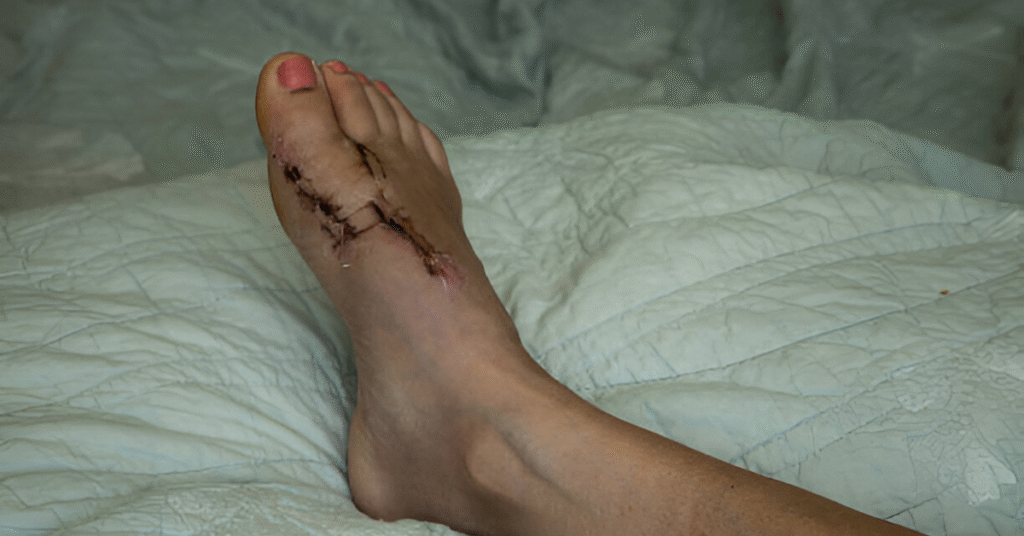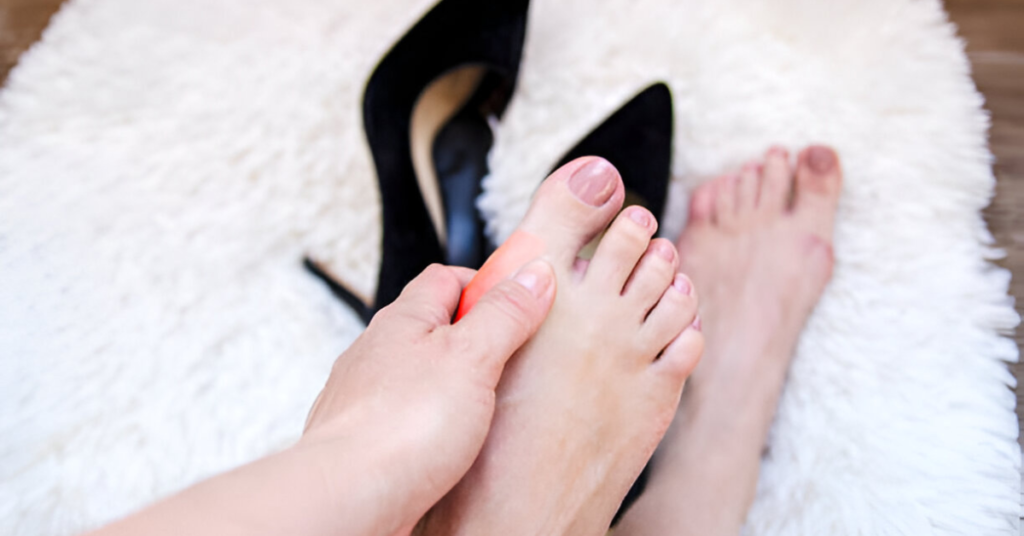Can Bunion Surgery Cause Nerve Damage?
Introduction Bunions can make everyday movement painful, limit your footwear choices, and cause inflammation or even deformity in your feet. For many patients, bunion surgery becomes a necessary step toward long-term relief. At Sole Foot and Ankle in Valparaiso, we help patients understand every aspect of the procedure—including potential risks such as nerve damage. While complications are rare, it’s important to be informed before making treatment decisions. Key Takeaways What Is Bunion Surgery? Bunion surgery, also called a bunionectomy, is performed to correct a bony bump that forms at the base of the big toe. This bump is caused by a misalignment of the joint. Over time, it can cause discomfort, swelling, and joint stiffness. The goal of bunion surgery is to realign the toe, relieve pain, and restore function. Multiple surgical methods exist, depending on the severity of the bunion and the patient’s lifestyle. Procedures may involve bone shaving, tendon realignment, or joint fusion. While most patients experience excellent outcomes, any surgical procedure carries risk—including nerve irritation or injury. Causes and Risk Factors for Nerve Damage Nerve damage after bunion surgery is uncommon, but it can occur. Nerves in the foot are delicate and may be affected during: Additional Risk Factors: Foot doctors take every precaution to prevent nerve-related complications. Symptoms to Watch For If nerve irritation or injury occurs after bunion surgery, symptoms may include: These symptoms are usually temporary and improve with time. However, it’s important to report them early to your podiatrist near you. Diagnosis and Testing At Sole Foot and Ankle Valparaiso, our podiatrists carefully evaluate post-surgical nerve health. Diagnostic Tools May Include: If nerve damage is suspected, early intervention supports better healing outcomes. Treatment Options for Nerve Complications Fortunately, most cases of nerve irritation after bunion surgery resolve on their own. When symptoms persist, treatment may include: Treatment Option Purpose Who It’s Best For Anti-inflammatory Medication Reduces swelling and nerve compression Mild nerve irritation Physical Therapy Improves mobility and nerve function Ongoing numbness or weakness Topical Creams Relieve tingling or burning sensations Localized nerve discomfort Nerve Regeneration Vitamins Support nerve repair (e.g., B-complex) Diabetic or at-risk patients Nerve Block Injections Reduce severe, localized nerve pain Chronic nerve pain after surgery Surgical Nerve Release Frees trapped or scarred nerves Rare cases unresponsive to conservative care Preventive Care Tips You can reduce your risk of nerve damage from bunion surgery by: Being proactive about healing improves both comfort and outcomes. When to See a Podiatrist If you’ve had bunion surgery and notice numbness, tingling, or pain that doesn’t go away, don’t wait. Seeing a podiatrist in Valparaiso early allows for prompt evaluation and tailored treatment. Even if you haven’t had surgery yet, but are experiencing bunion pain, visiting a foot doctor near you can help you avoid complications down the line. A Note from Sole Foot and Ankle At Sole Foot and Ankle in Valparaiso, we understand how important it is to move through life without foot pain. Whether you’re considering bunion surgery or need help recovering from one, our team is here to guide you every step of the way. Our expert podiatrists in Valparaiso, Indiana, offer compassionate care and advanced surgical techniques designed to reduce risks and maximize results. If you’re looking for a trusted podiatrist near you, schedule a consultation today. We’re here to help you walk comfortably again. Frequently Asked Questions Is nerve damage after bunion surgery permanent? In most cases, no. Nerve-related symptoms are usually temporary and improve with rest, therapy, or medication. Permanent damage is rare when surgery is performed by an experienced podiatrist Valparaiso Indiana. How common is nerve damage after bunion surgery? It’s uncommon. Most patients recover without experiencing nerve issues. When it does happen, it’s usually mild and treatable. What are the side effects of bunion surgery? Common side effects include swelling, bruising, temporary stiffness, and mild discomfort. Rare complications may involve infection or nerve irritation. How do you know if you have nerve damage in your foot after surgery? Signs include numbness, tingling, burning, or weakness in the foot or toes. If these symptoms persist, you should see a Valparaiso podiatrist promptly. Does bunion cause nerve damage? Yes, in some cases. A large bunion may press on nearby nerves, causing pain or tingling. Surgery can relieve this pressure and restore comfort.





